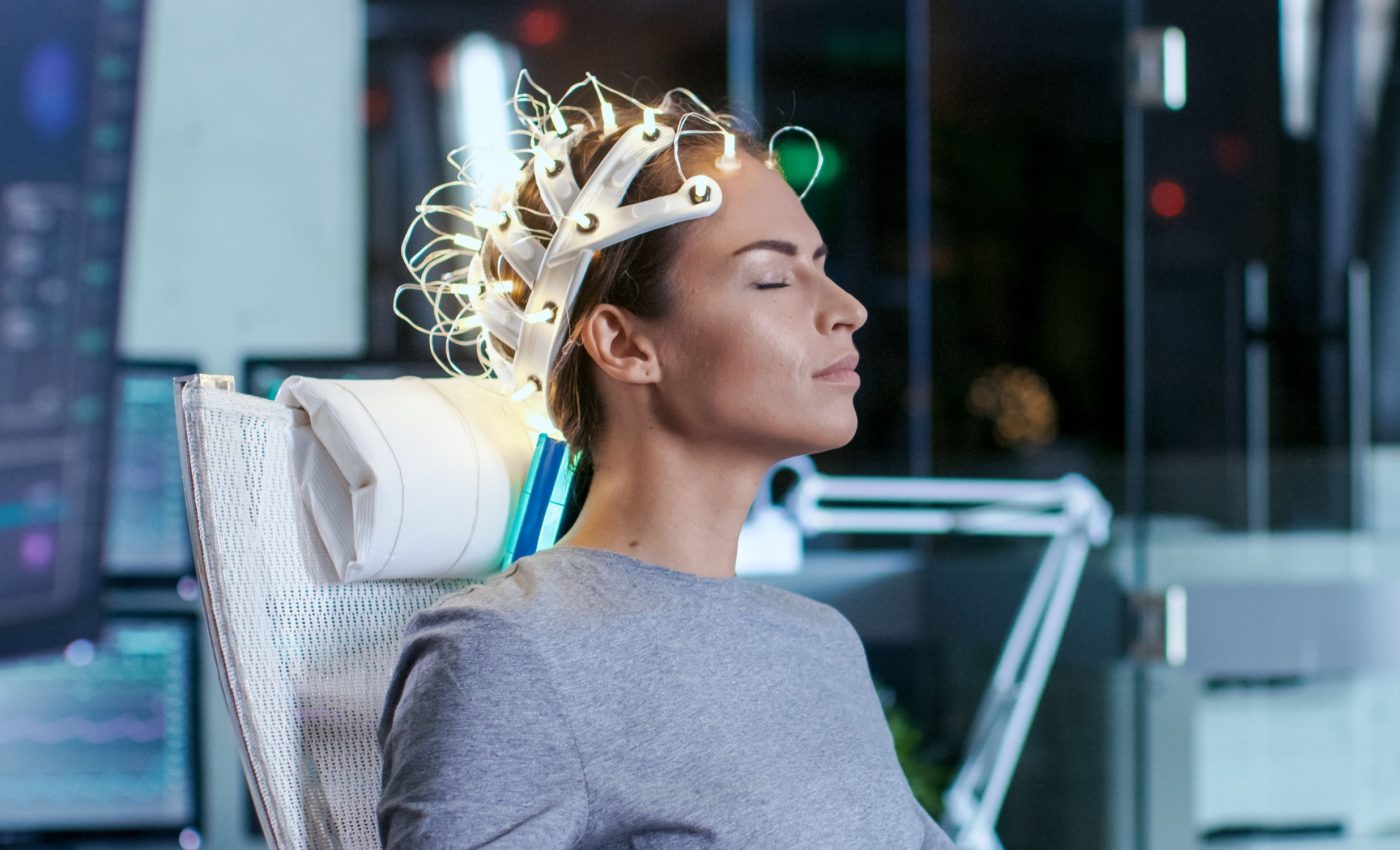
Brain stimulation may help slow memory loss as people age
As a child, she watched her grandfather’s brain slowly betray him – taking away his ability to move, think clearly, and care for himself. Parkinson’s disease didn’t just affect his body – it changed how he lived, how he related to his family, and how he remembered the world. That experience stayed with her.
Now, decades later, Dr. Jessica Bernard is researching how the brain ages – and how to help people stay sharp and independent longer.
She and her team at Texas A&M University are focused on the cerebellum – a part of the brain that was long thought to handle only balance and movement. But new research suggests it also plays a key role in memory, cognition, and daily functioning.
The cerebellum’s role in memory
Tucked at the back of the brain, the cerebellum is responsible for voluntary movements, posture, and balance. But it’s also involved in mental tasks like language and memory.
As people age, nerve cells in the cerebellum may stop working, disconnect from other brain areas, or die off entirely.
“An individual’s ability to think and move can be measured by observing them as they engage in prescribed activities, administering surveys and imaging their brains structurally and functionally,” said Bernard.
“In our research we ask questions about how the brain changes over time and whether we can develop interventions to slow or mitigate the negative effects of these changes.”
How the brain changes with age
Bernard is currently leading a two-year study supported by the WoodNext Foundation. The study includes 120 participants split into three groups: young healthy adults, cognitively normal older adults, and older adults showing signs of mild cognitive impairment.
“Our young adults serve as a baseline for optimum cognitive functioning,” said Bernard. “In cognitively normal older adults, we see occasional lost keys, forgetting a detail here or there as one might expect with healthy aging.”
“Older adults with mild cognitive impairment may have difficulty thinking through things, recalling meaningful information or they may have balance or mobility challenges that can cause them to become increasingly dependent on others.”
The research goes beyond testing memory. It also looks at how thinking and movement work together. This connection can directly impact a person’s ability to do everyday tasks like getting dressed, using the bathroom, feeding themselves, or walking across a room without help.
Can brain stimulation slow aging?
The intervention being tested is called Theta Burst Stimulation (TBS), a form of transcranial magnetic stimulation. It uses short pulses to mimic the brain’s natural rhythms, which may help improve how brain regions work together.
Bernard believes TBS might improve behavioral performance, activate key functions, and strengthen brain networks – especially in those dealing with age-related decline or early cognitive impairment.
“By stimulating the brain’s capacity to process and interpret information and stimulating the connections between the different brain regions that work together to perform certain tasks, TBS may improve or preserve memory and motor performance,” said Bernard.
“While this approach will not stop age-related decline, we are hopeful that it will provide a better quality of life and function for a longer period of time.”
If the findings are strong, this non-invasive approach could open the door to new treatments for more serious brain disorders in the future.
Research beyond aging
Bernard’s lab is also involved in other studies that explore how the brain changes in different life stages and situations.
One project, funded by the Mental Research Institute, looks at how brain and hormonal shifts during and after pregnancy affect relationships between first-time mothers and their babies.
The research is a collaboration with Dr. Rebecca Brooker, a specialist in early development and parent-child interactions.
“In the study we look at how these biological changes impact parenting and infant outcomes,” said Bernard. “We plan to use this information to prepare new moms to become parents and better understand what it means for maternal mental health and well-being.”
A clearer picture of the brain
What unites all of Bernard’s projects is a single goal: helping people live fuller, more independent lives. Whether that means giving a mother more insight into her relationship with her child or helping an older adult remember their grandchildren’s names, the work is deeply human.
By studying how the brain changes and testing ways to support it, Bernard and her team are giving us new ways to think about aging – and to act on it.
“I am fortunate to work alongside colleagues from a variety of academic disciplines including statistics, nursing, health and kinesiology, biology and medicine,” said Bernard.
“The brain is the most complex organ in the body, and we must take a comprehensive approach to understanding its structure, function and to developing best practices for its care.”
—–
Like what you read? Subscribe to our newsletter for engaging articles, exclusive content, and the latest updates.
Check us out on EarthSnap, a free app brought to you by Eric Ralls and Earth.com.
—–













